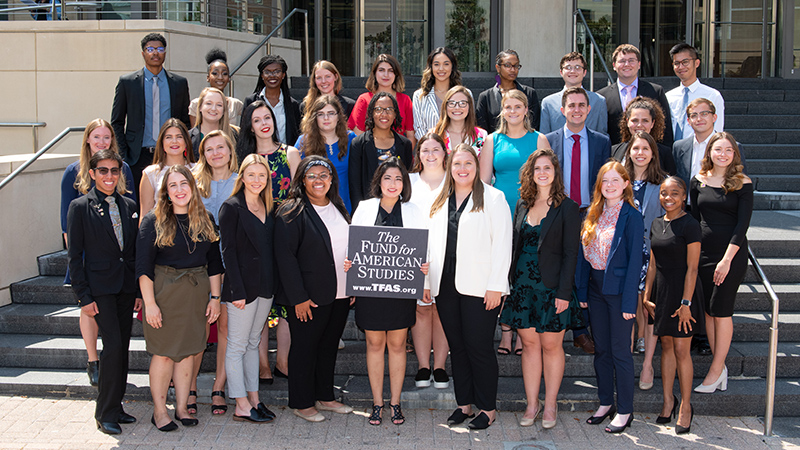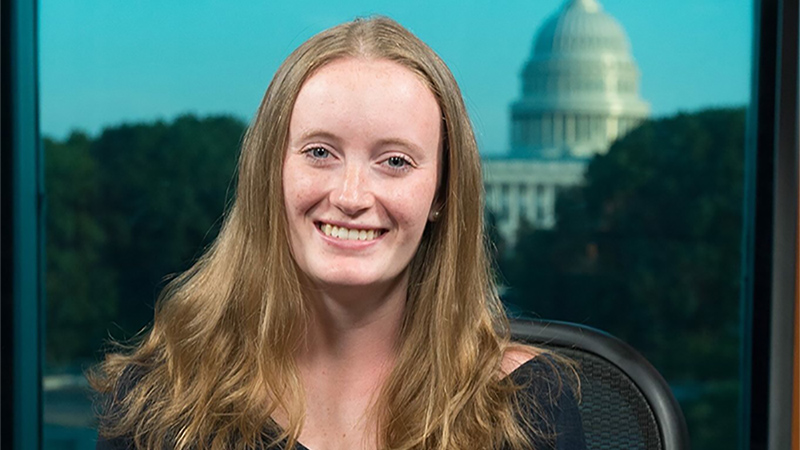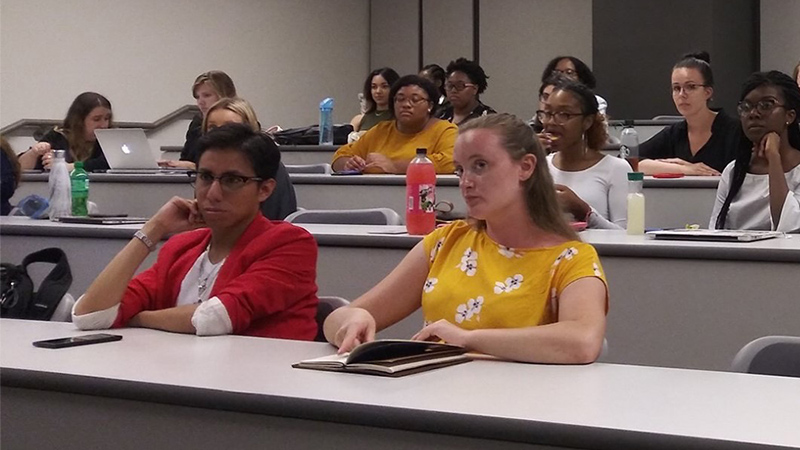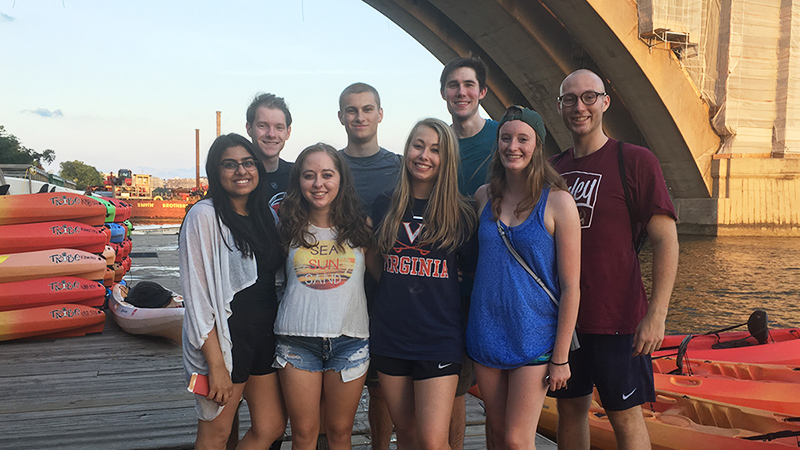
Here at TFAS, we refuse to let COVID-19 kill the D.C. summer internship. Through TFAS Virtual Summer, we’re working with students and D.C.-based institutions to bring the value and experience of the coveted capital city internship right to students’ homes.
TFAS does a great job of matching students with organizations. It’s almost personality matching. Elin was personally recommended to us, and my mentee was from my home state. They take care to match on factors beyond major and industry.” – Christina Paulos, Managing Director, The Well News

Two-time TFAS alumna Elin Johnson ’17, ’19 knows the value of a virtual internship firsthand. She – like many other TFAS students – worked remotely from her dorm or at a telework space during both of her TFAS summers in D.C. In 2017 and 2019, Johnson spent her summers as a student in the TFAS Journalism + Communications program track. She interned first in the marketing department of The Mentor Method, and two years later as a reporter for The Well News (TWN), a “straight news” platform where she covered senate hearings and state political issues, and gained a deeper appreciation for the news industry.
As an intern, these experiences taught me to be a self-starter, motivated and responsible, which are important skills that you need as you enter the job market.” – Elin Johnson, ’17, ’19
A journalism and media studies and international relations double major, Johnson says in addition to discovering her passion, both TFAS internships taught her the importance of responsibility, time management and prioritization.
“As an intern, these experiences taught me to be a self-starter, motivated and responsible, which are important skills that you need as you enter the job market,” she said. “Employers are really looking for these skills, and most college students don’t have them prior to entering the workforce, because school is so much different than work.”
Johnson’s internship supervisors Christina Paulos and Dan McCue of TWN agree. Both share a positive experience of supervising Johnson, telling TFAS she was a valuable asset to their team because of her independence, reliability, curiosity and communication skills.

“Elin was a good team player who had a strong enough sense of what was going on to share input and ideas,” said McCue. “When it came to edits, she was eager and willing to learn why we made changes, never in a challenging way, but in an open way.”
The match between intern and site host is no coincidence. TFAS serves as a kind of personal HR department by pre-screening candidates and matching promising young leaders to roles based on shared goals and interests.
Paulos, who serves both as an internship supervisor and TFAS mentor, said TFAS goes “the extra-mile” to find true culture fits when matching students to professionals.
“TFAS does a great job of matching students with organizations,” she said. “It’s almost personality matching. Elin was personally recommended to us, and my mentee was from my home state. They take care to match on factors beyond major and industry.”
Combining these shared goals, interests and proactive communication, Elin was set on the right path to focus and develop her reporting skills. While at TWN, Elin produced multiple bylines and walked away with concrete examples of her work.

“Now that I’ve left, I have more than 30 bylines that I can pick and choose from to show that I’ve worked in a professional news setting,” she said.
Hailing from Alaska and attending school in Oregon, Johnson was also uniquely equipped to cover stories related to the Pacific Northwest. In addition to covering D.C. news, Johnson reported on state and local elections and bills. As all internships move to virtual in 2020, employers have the advantage of creating a national presence through remote interns.
“As we’ve been interviewing candidates for this summer, we’ve uncovered even more opportunities of remote internships,” said McCue. “We’re able to turn this into an advantage of state and regional coverage. Almost every member of congress is up for reelection, so it gives us an opportunity to cover more topics outside of D.C. and in ‘the real world’ where people are campaigning.”

Outside of the news lens, TFAS remote interns provide even more unique benefits to employers: Because TFAS interns work part time attending classes and professional development sessions when they’re not on the clock, employers have the opportunity to assign, check in and follow up on tasks on a more fluid schedule than the typical 40-hour work-week schedule allows.
And the benefits go beyond schedule. McCue says that as a smaller organization, remote interns provide the feel of a larger company, allowing employers to practice mentoring and guiding a variety of working styles.
In addition to these benefits, Paulos says there’s a highly valuable but practical side, too: without an intern physically in the office, employees don’t have to worry about finding an empty desk for the interns, and they can get right to work on day one.
“Not being tied to a desk encouraged me to be working and doing more on the ground reporting,” said Johnson. “That was definitely the sentiment I felt when I was coming in, and it allowed me to get writing and working hard early on.”
Going into the unusual and unprecedented times of summer 2020, both Johnson and The Well News are looking at exciting times ahead: On June 6, TWN will welcome five new TFAS interns participating in the TFAS Virtual Summer, and on the same day, Johnson will begin her first job after college as the summer reporting intern at The Chronicle of Higher Education.
Utilizing the training, contacts, experience and advice from the TFAS Network, Johnson applied to and was hired for her dream job at The Chronicle that she’ll start next month.
“I know that I wouldn’t be able to graduate with a job in a field that I love if it hadn’t been for TFAS and for the scholarship donors who made it possible for me to pursue this,” Johnson said.
Learn MORE
Would you or any of your contacts benefit from hosting a TFAS student for a virtual internship this summer? We are looking for virtual positions that involve research, writing and other projects that students can work on for 10+ hours a week. If interested, please fill out our intern request form here or email Joe Starrs at jstarrs@TFAS.org.
On Tuesday, May 19, TFAS is hosting a webinar on “Hosting a Remote Intern: Tips and Tricks for a Successful Summer” to help organizations learn how make the most of hosting a remote TFAS intern this summer.

